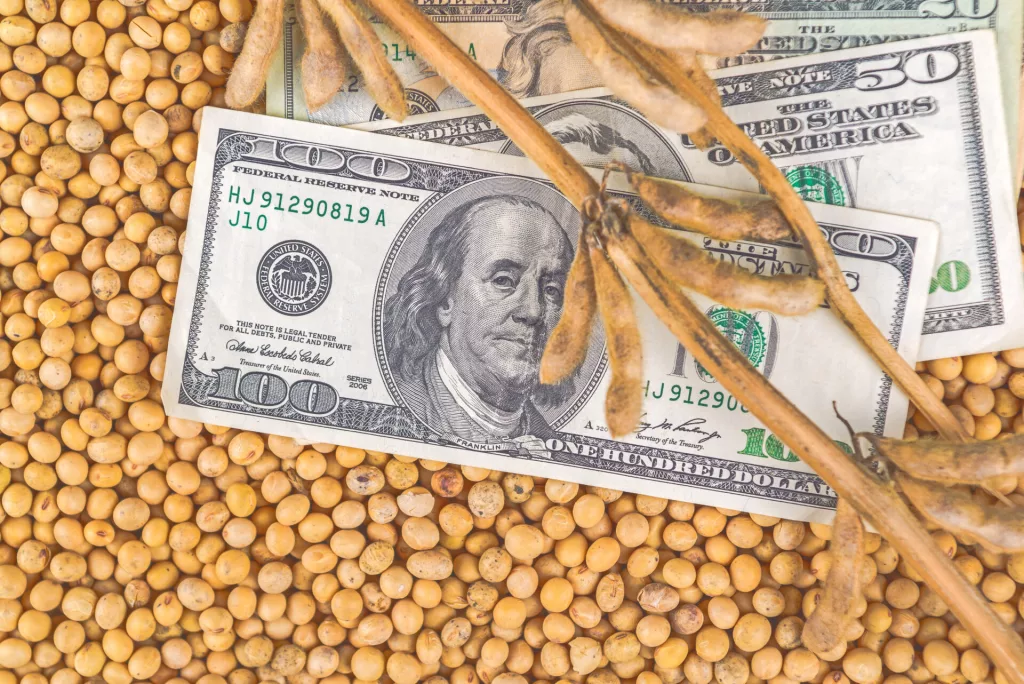Your browser doesn’t support HTML5 audio
A U.S. Department of Agriculture (USDA) economist said there have been changes this year in the soybean market.
At the Agri-Pulse Ag Outlook forum this week in Kansas City, Missouri, USDA economist Seth Meyer said this year has seen very strong domestic demand for soybeans.
“And to the point that as we see estimates and yields change or production change within the United States, crush stays fairly stable and the difference comes out of trade and comes out of exports. Why? Because crush margin in the US is pretty strong relative to history,” he said. “We’ve got capacity growing a little bit, supported by positive crush margins. And so that crop is going to be crushed domestically, and that’s also what supporting soybean prices domestically.”
In fact, he said oil value is much higher than it has been historically, and as much as 40 percent of the value of the soybean now comes from the oil share.
“A lot of that being supported by domestic policy when it comes to biofuels, when it comes to the potential for sustainable aviation fuels. A lot of that, again, coming from demand for oil domestically supporting that soybean crush,” he said. “I think when we think about the balance sheet for soybeans, crush [is] less responsive to price than exports or stocks.”
As for bean exports, he said some conditions around the globe have changed the game.
“You’ve got two years of decline. Again, reminding you we’re coming out of three years of the La Nina’s negative effects in Argentine production, maybe some in Australia, to a more normal weather estimate, get you over 211 million metric tons of soybean production,” he said. “That’s a big number. And that’s what will be providing potential competition to us.”
He said there is always the possibility that the crop won’t produce as expected, but there is also the possibility that it will.

